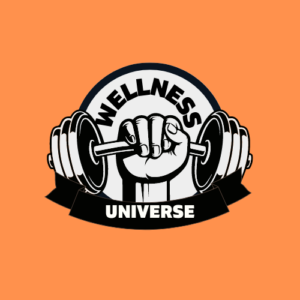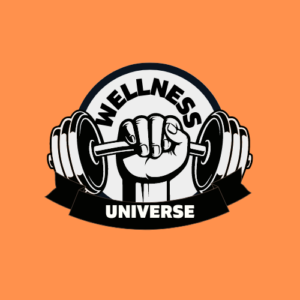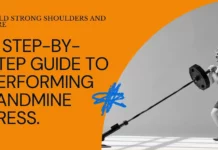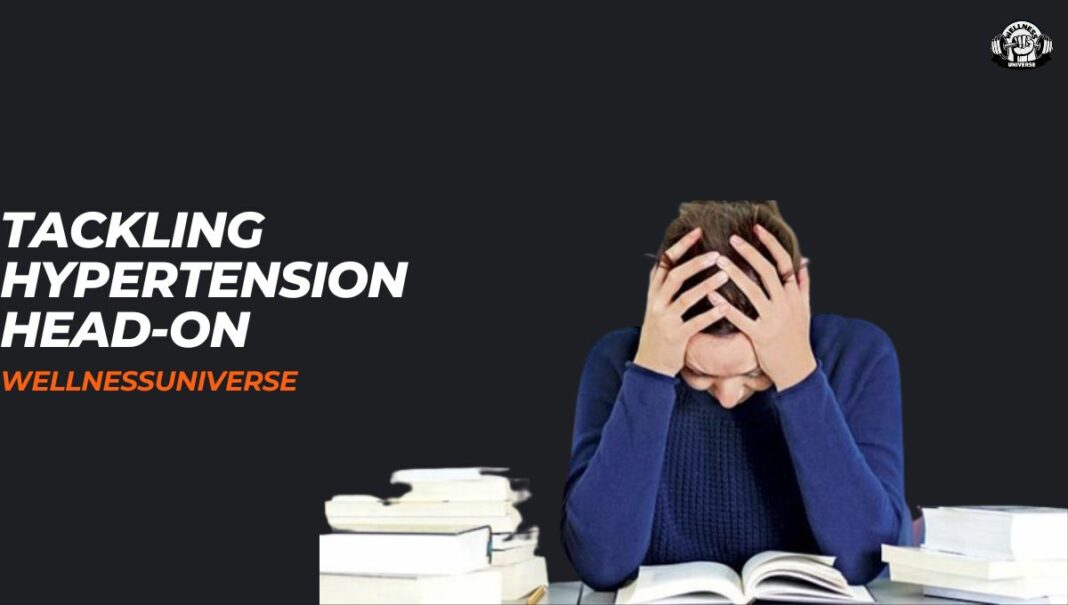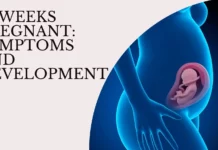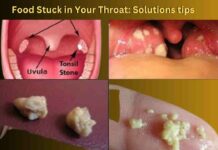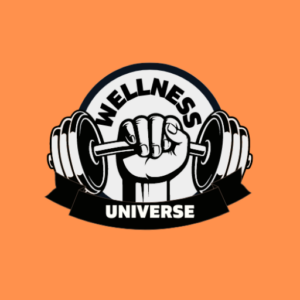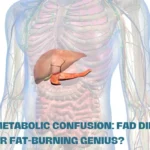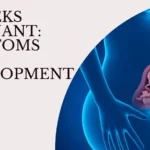Hypertension, commonly known as high blood pressure, is a chronic medical condition characterized by elevated blood pressure levels in the arteries. Blood pressure is the force exerted by the blood against the walls of the arteries as the heart pumps it throughout the body. It is measured in millimeters of mercury (mmHg) and is recorded as two values – the systolic pressure (when the heart contracts) over diastolic pressure (when the heart is at rest). For instance, a blood pressure reading of 120/80 mmHg is considered normal. However, when the blood pressure consistently exceeds 130/80 mmHg, it is classified as hypertension.
Hypertension is a significant global health concern, affecting millions of people worldwide. According to the World Health Organization (WHO), hypertension is one of the leading risk factors for heart disease, stroke, and kidney failure, contributing to approximately 10 million deaths annually. It is often referred to as the “silent killer” because it typically does not cause noticeable symptoms until it reaches a severe or life-threatening stage. Given its widespread impact on health and well-being, understanding and managing hypertension is crucial for preventing long-term complications.
Addressing hypertension is of paramount importance to safeguard one’s overall health and reduce the risk of developing serious medical conditions. When blood pressure remains consistently high, it puts strain on the arteries and the heart, leading to various health complications. Over time, untreated hypertension can damage blood vessels, and increase the risk of heart attacks, strokes, heart failure, and kidney disease.
Controlling hypertension not only reduces the risk of cardiovascular events but also improves overall quality of life. By managing blood pressure effectively, individuals can experience increased energy levels, improved cognitive function, and better physical and mental well-being.
Understanding Hypertension
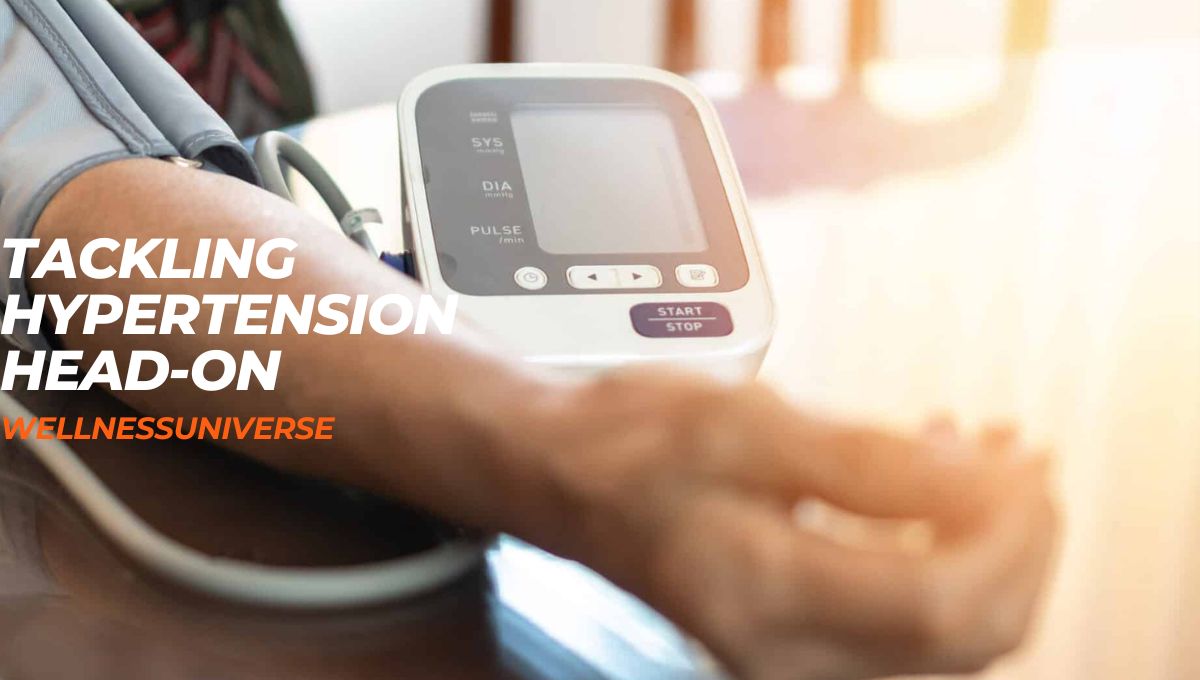
Hypertension, or high blood pressure, occurs when the force of blood against the artery walls is consistently too high. Blood pressure is influenced by various factors, including the pumping of the heart, the volume of blood, and the resistance in the arteries. When the blood vessels become narrower or less elastic, it increases resistance, leading to elevated blood pressure levels.
Blood pressure is measured in millimeters of mercury (mmHg) and is represented by two numbers. The first number, systolic pressure, indicates the pressure in the arteries when the heart contracts and pumps blood out. The second number, diastolic pressure, represents the pressure when the heart is at rest between beats.
A normal blood pressure reading is typically around 120/80 mmHg. Hypertension is diagnosed when blood pressure consistently measures at or above 130/80 mmHg. The condition is further classified into stages based on the severity of the blood pressure readings.
Hypertension can be classified into two main categories: primary (essential) hypertension and secondary hypertension.
- Primary Hypertension: This form of hypertension has no identifiable cause and accounts for the majority of hypertension cases. It develops gradually over time and is influenced by a combination of genetic, environmental, and lifestyle factors. Factors such as age, family history of hypertension, obesity, lack of physical activity, excessive salt intake, and high-stress levels can contribute to primary hypertension.
- Secondary Hypertension: Secondary hypertension results from an underlying medical condition or medication that leads to elevated blood pressure. It can occur suddenly and is usually more severe than primary hypertension. Medical conditions that can cause secondary hypertension include kidney disease, hormonal disorders, thyroid problems, adrenal gland tumors, and certain medications like birth control pills or decongestants.
Hypertension can affect individuals of all ages, races, and ethnicities, but certain factors increase the risk of developing the condition. Identifying these risk factors can help individuals and healthcare professionals take preventive measures and monitor blood pressure more closely.
Common risk factors for hypertension include:
- Age: Blood pressure tends to increase with age, making older adults more susceptible to hypertension.
- Family History: Having a family history of hypertension or cardiovascular disease can increase the risk.
- Obesity: Excess body weight, especially around the waist, can elevate blood pressure.
- Physical Inactivity: Lack of regular physical activity can contribute to hypertension.
- Unhealthy Diet: Diets high in sodium (salt), saturated and trans fats, and low in potassium can raise blood pressure.
- Smoking: Smoking damages blood vessels and can increase blood pressure.
- Excessive Alcohol Consumption: Heavy alcohol consumption can lead to hypertension.
- Stress: Chronic stress and anxiety can influence blood pressure levels.
- Chronic Kidney Disease: Kidney problems can lead to fluid and sodium retention, affecting blood pressure.
- Sleep Apnea: Sleep-disordered breathing can contribute to hypertension.
Individuals with one or more of these risk factors should be vigilant about monitoring their blood pressure regularly. Early detection and lifestyle modifications can play a significant role in preventing or managing hypertension effectively. Additionally, healthcare professionals can help identify risk factors and offer personalized strategies to reduce the risk of hypertension-related complications.
Recognizing Hypertension
Hypertension is often referred to as the “silent killer” because it typically does not cause noticeable symptoms in its early stages. As blood pressure increases gradually, many individuals may remain unaware of their condition until it reaches a critical level or leads to complications. However, there are some signs and symptoms that may indicate hypertension, especially when blood pressure is extremely high or when it causes secondary effects on the body.
Common signs and symptoms of hypertension include:
- Frequent Headaches: Persistent headaches, especially at the back of the head, can be a symptom of high blood pressure.
- Fatigue and Dizziness: Feeling tired or dizzy may occur, but these symptoms are not exclusive to hypertension and can be caused by various factors.
- Blurred Vision: Hypertension can affect blood flow to the eyes, causing blurred or impaired vision.
- Shortness of Breath: Difficulty breathing or shortness of breath, particularly during physical activities, can be related to hypertension.
- Chest Pain: Severe hypertension can put a strain on the heart and lead to chest pain or discomfort.
- Nosebleeds: While less common, severe and uncontrolled hypertension can cause nosebleeds.
It is essential to note that these symptoms are not specific to hypertension and may be caused by other health conditions. Regular blood pressure monitoring is crucial for detecting hypertension early, especially for individuals with risk factors or a family history of the condition. Hypertension is typically diagnosed through routine blood pressure checks during medical appointments.
A hypertensive crisis occurs when blood pressure reaches dangerously high levels and requires immediate medical attention. Hypertensive crises are classified into two categories: hypertensive urgency and hypertensive emergency.
- Hypertensive Urgency: In this situation, blood pressure is severely elevated but does not cause immediate organ damage. Symptoms may include severe headaches, shortness of breath, nosebleeds, and severe anxiety. While urgent medical evaluation is necessary, hypertensive urgency does not require hospitalization.
- Hypertensive Emergency: A hypertensive emergency is a critical situation where blood pressure reaches extremely high levels and results in organ damage. Symptoms may include severe headache, chest pain, blurred vision, confusion, seizures, and loss of consciousness. This condition is life-threatening and requires immediate medical intervention in a hospital setting to bring blood pressure under control and prevent further complications.
Hypertension is often asymptomatic in its early stages, earning its reputation as a silent condition. Many individuals may not experience noticeable symptoms until blood pressure reaches dangerously high levels or causes secondary complications such as heart disease, stroke, or kidney damage.
Routine check-ups and blood pressure measurements are crucial for detecting hypertension before it leads to severe health issues. Adults should have their blood pressure checked at least once every two years, and more frequently for those with risk factors or a family history of hypertension. Early detection allows for timely intervention through lifestyle modifications, medications, and other treatments to manage blood pressure effectively and reduce the risk of complications.
Regular health check-ups also provide an opportunity for healthcare professionals to assess overall cardiovascular health, screen for other risk factors, and offer personalized advice on managing blood pressure and promoting heart health. Taking a proactive approach to hypertension management can lead to better outcomes and improved quality of life.
Managing Hypertension
Diet and nutrition play a crucial role in managing hypertension and promoting heart health. Making smart food choices can help lower blood pressure and reduce the risk of complications associated with hypertension. Here are some dietary recommendations for individuals with hypertension:
- DASH Diet: The Dietary Approaches to Stop Hypertension (DASH) diet is a proven approach to lower blood pressure. It emphasizes consuming fruits, vegetables, whole grains, lean proteins, and low-fat dairy products while limiting sodium, saturated fats, and added sugars.
- Reduce Sodium Intake: High sodium intake can lead to fluid retention and increased blood pressure. Aim to reduce the consumption of processed and packaged foods, as they are often high in sodium. Instead, opt for fresh, whole foods prepared at home with minimal salt.
- Increase Potassium-Rich Foods: Potassium helps counteract the effects of sodium on blood pressure. Include potassium-rich foods such as bananas, oranges, tomatoes, potatoes, and leafy greens in your diet.
- Limit Alcohol and Caffeine: Excessive alcohol and caffeine intake can raise blood pressure. Moderation is key, and it’s best to limit alcohol to one drink per day for women and two drinks per day for men.
- Watch Portion Sizes: Controlling portion sizes can help manage calorie intake, maintain a healthy weight, and improve blood pressure levels.
Regular physical activity and exercise are essential components of hypertension management. Engaging in aerobic activities can improve cardiovascular fitness, lower blood pressure, and reduce the risk of heart disease. Here are some exercise guidelines for individuals with hypertension:
- Aerobic Exercise: Aim for at least 150 minutes of moderate-intensity aerobic exercise or 75 minutes of vigorous-intensity aerobic exercise per week. Activities such as brisk walking, jogging, cycling, swimming, and dancing are excellent choices.
- Strength Training: Include strength training exercises two or more days per week. Resistance training helps build muscle, which can contribute to better blood pressure control.
- Be Consistent: Consistency is key to reaping the benefits of exercise on blood pressure. Try to spread your activity throughout the week and avoid long periods of inactivity.
- Warm-up and Cool-down: Before starting any exercise, warm up with gentle movements and stretching. After your workout, cool down with light stretching to reduce the risk of injury.
Chronic stress and anxiety can contribute to hypertension and negatively impact overall health. Managing stress and incorporating relaxation techniques can be beneficial for blood pressure management. Here are some stress reduction techniques and lifestyle modifications to consider:
- Mindfulness and Meditation: Practicing mindfulness and meditation can help reduce stress and promote a sense of calm and relaxation.
- Deep Breathing Exercises: Deep breathing exercises can help lower blood pressure and reduce stress responses.
- Yoga and Tai Chi: These mind-body practices combine physical movement with breathwork and relaxation techniques, making them beneficial for stress reduction and overall well-being.
- Get Enough Sleep: Poor sleep patterns and inadequate rest can affect blood pressure levels. Aim for 7-9 hours of quality sleep per night.
- Limit Caffeine and Nicotine: Both caffeine and nicotine can temporarily raise blood pressure. Reducing or eliminating these stimulants can be helpful.
- Avoiding Tobacco and Limiting Alcohol: Smoking and excessive alcohol consumption can contribute to hypertension. Quitting smoking and moderating alcohol intake can have positive effects on blood pressure.
By adopting a healthy lifestyle that includes a balanced diet, regular exercise, and stress management techniques, individuals with hypertension can better control their blood pressure and improve their overall cardiovascular health. It’s essential to work with healthcare professionals to create a personalized plan that addresses individual needs and medical history. Remember, lifestyle changes are a powerful tool in managing hypertension, complementing medical treatments, and reducing the risk of complications associated with this condition.
Regular Exercise and Physical Activities
Aerobic exercises, also known as cardiovascular exercises, are highly effective in reducing blood pressure and improving overall cardiovascular health. These activities involve continuous and rhythmic movements that elevate the heart rate and increase oxygen consumption. Engaging in regular aerobic exercises has been shown to have a positive impact on blood pressure by:
- Improving Blood Vessel Function: Aerobic exercises promote the dilation of blood vessels, reducing resistance to blood flow and subsequently lowering blood pressure.
- Increasing Cardiac Output: Regular aerobic workouts strengthen the heart, allowing it to pump blood more efficiently with each beat.
- Enhancing Blood Circulation: Improved blood circulation delivers oxygen and nutrients to various tissues and organs, supporting their proper functioning.
- Reducing Stress and Anxiety: Aerobic exercises stimulate the release of endorphins, which are natural mood-boosting hormones. Lower stress levels can contribute to lower blood pressure.
Examples of effective aerobic exercises for hypertension control include brisk walking, jogging, running, cycling, swimming, dancing, and aerobic classes. Aim for at least 150 minutes of moderate-intensity aerobic exercise or 75 minutes of vigorous-intensity aerobic exercise per week, spread across several sessions.
While aerobic exercises primarily focus on the cardiovascular system, strength training, and resistance exercises are equally essential for hypertension management. Incorporating resistance training into your workout routine can have several benefits:
- Building Muscle Mass: Resistance training helps build lean muscle mass, which can lead to improved metabolism and blood sugar regulation.
- Reducing Insulin Resistance: Resistance exercises improve insulin sensitivity, which is crucial for individuals with hypertension and metabolic conditions.
- Supporting Bone Health: Strength training can increase bone density, reducing the risk of osteoporosis, a condition commonly associated with aging.
- Lowering Blood Pressure: Engaging in resistance exercises has been linked to a modest reduction in blood pressure levels.
Include strength training exercises, such as weightlifting, bodyweight exercises, or resistance band workouts, at least two or more days per week. Target all major muscle groups, such as the legs, arms, chest, back, and core, for a balanced and comprehensive approach to strength training.
When incorporating exercise into hypertension management, it’s essential to strike a balance between intensity and duration to ensure safe and effective workouts. Here are some considerations:
- Gradual Progression: If you are new to exercise or have hypertension, start with lower-intensity workouts and gradually increase the intensity and duration over time.
- Monitor Blood Pressure: If you have hypertension, consider monitoring your blood pressure before, during, and after exercise. Consult with your healthcare provider about safe target levels.
- Warm-up and Cool-down: Always begin your workouts with a warm-up to prepare your body for exercise and end with a cool-down to facilitate recovery.
- Listen to Your Body: Pay attention to how your body responds to exercise. If you experience dizziness, shortness of breath, chest pain, or any concerning symptoms, stop exercising and seek medical attention if necessary.
- Hydration and Rest: Stay well-hydrated during exercise and allow your body adequate time to recover between workouts.
By incorporating a combination of aerobic exercises, resistance training, and other physical activities into your routine, you can create a comprehensive and effective strategy for managing hypertension. However, always consult with your healthcare provider before starting any new exercise program, especially if you have hypertension or other pre-existing health conditions. Their guidance and expertise can help you develop a personalized exercise plan that supports your health goals and ensures your safety during physical activity.
In Crux
In the journey to achieve and maintain optimal heart health, prioritizing regular health check-ups and blood pressure monitoring is of utmost importance. Hypertension is often referred to as the “silent killer” because it may not present noticeable symptoms until it reaches advanced stages. Regular check-ups with your healthcare provider allow for early detection of hypertension and other potential health issues, enabling timely interventions and prevention of complications.
By monitoring your blood pressure regularly, you can track changes and trends in your readings. This proactive approach helps you stay informed about your heart health and empowers you to make informed decisions about lifestyle modifications or treatment plans if necessary. Remember that hypertension is a manageable condition, and early detection can lead to better outcomes and improved quality of life.
Understanding the significance of early detection and taking a proactive approach to hypertension management is vital in safeguarding your heart health. By making lifestyle changes, such as adopting a heart-healthy diet, engaging in regular physical activity, managing stress, and avoiding tobacco and excessive alcohol consumption, you can significantly reduce your risk of developing hypertension or improve your condition if you already have it.
Medical intervention may be necessary for some individuals, and this could include prescribed medications to help control blood pressure. It is essential to work closely with your healthcare provider to find the most suitable treatment plan tailored to your unique needs. Adherence to prescribed medications and regular follow-up appointments are crucial elements in managing hypertension effectively.
As a fitness expert and advocate for heart health, my mission is to empower readers with knowledge and strategies for leading a heart-healthy lifestyle. Understanding hypertension, its risk factors, and its impact on overall health is the first step in taking charge of your well-being. Armed with this knowledge, you can make informed choices about your diet, exercise routine, stress management techniques, and other lifestyle factors that significantly influence heart health.
Remember that small, consistent changes can yield significant long-term benefits. Adopting a heart-healthy lifestyle is not a temporary fix but a lifelong commitment to prioritizing your health and well-being. By embracing positive habits and incorporating regular exercise, nutritious foods, and stress-relief techniques into your daily routine, you can create a strong foundation for cardiovascular health.
In conclusion, hypertension is a prevalent and manageable condition that requires proactive attention and care. By staying informed, engaging in regular health screenings, and adopting a heart-healthy lifestyle, you can take control of your heart health and reduce your risk of complications. Empower yourself with the knowledge and tools to lead a heart-healthy life, and together, we can work towards a healthier future with fewer cases of hypertension and better overall well-being.
Thank you for joining us on this fitness journey! We hope you found our From Pressure to Prevention: Tackling Hypertension Head-On? blog insightful and inspiring. Our aim is to provide you with valuable information, expert advice, and motivational content to support you in your wellness endeavors.
Related Post :-
- How To Do Wall Pushups
- Hand Size Demystified
- CrossFit Unleashed
- Barbell Lunges
- Forearm Fortitude
- Kettlebell Circuit
- Power of Personal Trainers
- Down Pull-Ups
FAQs about Hypertension
What are the common symptoms of hypertension?
In its early stages, hypertension may not cause noticeable symptoms, earning it the nickname "silent killer." However, as blood pressure levels rise, some individuals may experience symptoms such as headaches, dizziness, blurred vision, chest pain, or shortness of breath. It is crucial to note that symptoms may not always be present, making regular blood pressure screenings essential for early detection and management.
Can hypertension lead to serious health complications?
Yes, untreated hypertension can lead to severe health complications. Over time, the increased pressure on the arterial walls can damage blood vessels, the heart, and various organs. Hypertension is a significant risk factor for heart disease, stroke, kidney disease, and other cardiovascular problems. Timely diagnosis and proper management are essential to reduce the risk of complications.
How can I manage hypertension through lifestyle changes?
Lifestyle changes play a crucial role in hypertension management. Modifying your diet to include heart-healthy foods, reducing sodium intake, maintaining a healthy weight, engaging in regular physical activity, and managing stress are all important lifestyle measures. Limiting alcohol consumption and avoiding tobacco use is also beneficial for blood pressure control.
Can regular exercise help lower blood pressure?
Yes, regular aerobic exercise can help lower blood pressure. Engaging in activities such as brisk walking, jogging, swimming, or cycling for at least 150 minutes per week can contribute to improved cardiovascular health and blood pressure reduction.
Can stress contribute to hypertension?
Yes, chronic stress can contribute to hypertension. Stress activates the body's "fight or flight" response, leading to temporary increases in blood pressure. Over time, prolonged stress can negatively impact blood pressure regulation, potentially contributing to hypertension.
Are there any natural remedies for hypertension?
Some individuals may explore natural remedies, such as incorporating garlic, hibiscus tea, or omega-3 fatty acids into their diet. While these remedies may offer some benefits, they are not a substitute for medical treatment and lifestyle changes. It is essential to consult with a healthcare provider before using any natural remedies for hypertension management.
Is hypertension preventable?
While certain risk factors, such as family history and age, are beyond our control, adopting a heart-healthy lifestyle can significantly reduce the risk of developing hypertension. By making positive lifestyle choices, such as eating a balanced diet, staying physically active, managing stress, and avoiding tobacco use, you can take proactive steps to prevent or delay the onset of hypertension.
Can hypertension impact pregnancy?
Hypertension during pregnancy, known as gestational hypertension, can present risks to both the mother and the baby. It is essential for pregnant women to receive proper prenatal care and regular blood pressure monitoring to manage and prevent potential complications.
Are medications necessary for hypertension management?
Depending on the severity of hypertension, lifestyle changes alone may not be sufficient to control blood pressure. In such cases, healthcare providers may prescribe medications to help manage hypertension effectively. Adhering to prescribed medications and making lifestyle modifications are often combined to achieve optimal blood pressure control and overall cardiovascular health.

Meet Pradeep Singh, your go-to guide for all things fitness, health, and motivation. With over 7 years in the field, Pradeep brings a blend of expertise and real-world experience to his writing. From workout tips to healthy living insights, he simplifies complex topics, making fitness accessible for everyone. His authentic approach and genuine passion aim to inspire and support your wellness journey. Get ready to embark on a path to a healthier lifestyle with Pradeep as your trusted companion and motivator.
